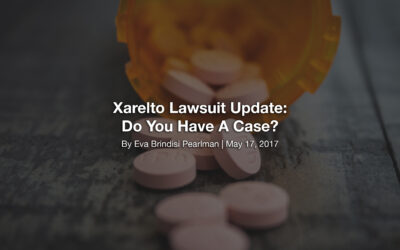Amid the most frequently prescribed medications in the world, proton pump inhibitors or (PPIs) such as Nexium and Prilosec are used by approximately 15 million Americans every year. These drugs are primarily used to treat conditions like heartburn and gastroesophageal reflux disease or GERD for short, also commonly called acid reflux.
Proton pumps are enzymes found in the parietal cells of the stomach whose main function is producing hydrochloric acid. When a proton pump inhibitor is used, it creates a long-lasting reduction in the stomach’s production of this hydrochloric acid, relieving the symptoms a patient suffers from in a condition like GERD such as heartburn, chest pain, and a hoarse throat.
Prilosec and Nexium are two drugs often prescribed by physicians to relieve these symptoms. Prilosec was the first to hit the market, developed in 1989. Then AstraZeneca launched an advertising campaign in 2001 that made Nexium grow in popularity in 2001, being branded as the “purple pills.” Today these PPI drugs are some of the most prescribed drugs in the United States.
What is GERD?
Many people have experienced occasional heartburn but Gastroesophageal reflux disease, or GERD, is a digestive condition that disturbs the lower esophageal sphincter or LES, the line of muscle between the stomach and esophagus. During a healthy digestion process, the LES opens to allow food to pass into the stomach and closes to prevent acidic stomach juices from flowing back into the esophagus. Gastroesophageal reflux is when the LES is weak or slackens improperly, letting the stomach’s contents to move up into the esophagus. As a result of GERD, many victims suffer from heartburn and acid indigestion.
GERD Symptoms
When a person is diagnosed with this digestive disease they experience the following GERD symptoms:
• Heartburn, or a burning sensation in your chest, sometimes extending to your throat, and a sour taste in your mouth
• Chest pain
• Sore throat or overall hoarseness
• Dry cough
• Difficulty swallowing
• Vomiting of food or sour liquid
• Feeling of a lump in your throat
As mentioned above, when suffering from GERD, patients often seek a proton pump inhibitor for treatment. However, reports show that PPIs like Nexium and Prilosec are doing more harm than good. Many people have become dependent on these medications, using them daily for years instead of the 8-12 week period recommended. In some cases, patients are receiving advice from their doctors to increase their dosages to get results. With prolonged use and higher dosages come problems. AstraZeneca recently has come under fire because it has been reported that Nexium and Prilosec users are suffering from severe side effects after taking the medications such as kidney disease.
Nexium & Prilosec Side Effects
Since its release, Nexium and Prilosec side effects include kidney damage, renal failure, intestinal infections, low magnesium levels, bone fractures, and dementia. Findings in February of 2016 showed that Nexium users had a 20-50 percent higher risk of developing chronic kidney disease. Kidney damage can be costly, as in the United States, chronic kidney disease costs $48 billion each year. Dialysis is a costly procedure that usually has to be repeated regularly and accounts for 6.7 percent of the Medicare budget for the United States. In 2011, the average cost of Medicare per individual in renal failure was $88,000 for external hermodialysis, $71,000 for internal peritoneal dialysis, and $33,000 for a transplant. Prilosec and Nexium users are more than twice as likely to develop kidney failure.
A study in February of 2016 also found a 44 percent higher risk of developing dementia from taking drugs like Nexium. Families of victims of the disease can explain how difficult the disease is on the both the patient and his or her loved ones. Victims of dementia oftentimes need around-the-clock care and are forced to live in nursing homes. There is no cure for dementia.
Why File a Lawsuit?
Thousands of Prilosec and Nexium victims are coming forward to file a lawsuit against AstraZeneca for compensation for pain, suffering, emotional distress, and medical expenses. A recent case against the pharmaceutical company alleges that AstraZeneca was aware of Nexium’s link to kidney injury as early as 2004 and still continued to market and sell the medication aggressively without changing its warning label.
If you or a loved one has suffered from severe Prilosec or Nexium side effects, you may be entitled to substantial compensation. Because mass tort lawsuits are a complicated process, you need an experienced personal injury lawyer in Central New York on your side. The attorneys at Brindisi, Murad, Brindisi & Pearlman have the experience you need and are ready to fight for you. Contact The People’s Lawyer for a free consultation today.
Share this blog with your friends…
Tags: Prilosec Lawsuit, Nexium Lawsuit

CONTACT US FOR A FREE CASE EVALUATION
Related Blogs
Invokana: Know The Risks
Invokana, also known as canagliflozin, is an oral diabetes medication that works to control blood sugar levels. Combined with diet and exercise, the drug is prescribed to treat individuals suffering from Type 2 diabetes. While it does help some, it does come...
Xarelto Lawsuit Update: Do You Have A Case?
Millions of Americans suffer from blood clots and strokes every day. In order to prevent these conditions from occurring, physicians often prescribe a blood thinner. A popular type of blood thinner medication is Xarelto. Many choose Xarelto over other blood...
Side Effects Of Lexapro
For millions of Americans, Lexapro provides relief for depression symptoms. In fact, the drug earned $355 million in 2011 alone. Lexapro is medication commonly prescribed to treat those with depression and anxiety disorder. First introduced in its generic form...
Injured In An Accident?
Contact BMBP Today!






BRINDISI, MURAD & BRINDISI PEARLMAN
UTICA OFFICE
Utica, NY 13501
OFFICE HOURS
MONDAY – FRIDAY
9AM-5PM


